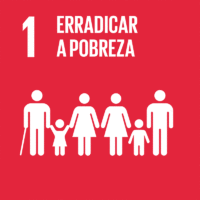Ciência_Iscte
Publicações
Descrição Detalhada da Publicação
Cultivating cannabis in a Paraguayan nature reserve: Incentives and moral justification for breaking the law
Título Revista
Trends in Organized Crime
Ano (publicação definitiva)
2024
Língua
Inglês
País
Estados Unidos da América
Mais Informação
Web of Science®
Scopus
Google Scholar
Esta publicação não está indexada no Overton
Abstract/Resumo
Paraguay has become the main cannabis producer in South America and one of the largest exporters in the world. Some investigations about the cultivation of marijuana in the country portray a cruel environment in which peasants are exploited in “almost feudal” conditions by intermediaries who buy their crops at unreasonably low prices. However, a group of peasants who use the Mbaracayú Forest Nature Reserve as their labour area have created a safe and profitable ecosystem for developing their business. Based on interviews with key informants and visits to the area, the article describes the constraints and incentives that lead those peasants to engage in criminal activities, the strategies they have used to establish protective barriers, and the moral justifications that emerge as a result of their success in doing business. Although there are violent practices and extortion, we claim that the decision-making process to get involved in illegal markets is a free action influenced by alternative moral understandings that provide reasons and justifications for breaking the law. The moral map of these cannabis growers goes far beyond the mere economic justification of generating material resources and is related to economic, institutional, and social premises linked to a generalized aspiration of dignity and a life worth living. The functioning of informal institutions learned through previous interactions with state and non-state actors who regulate and protect the market, the perceived social approval/legitimation of the activity by referent groups, and the awareness of the capacity and skills necessary to successfully conduct the business have a crucial importance in the moral reformulation.
Agradecimentos/Acknowledgements
--
Palavras-chave
Drug production,Moral justifcations,Future perspectives,Life worth living,Legitimate illegalities,Illegitimate legalities
Classificação Fields of Science and Technology
- Direito - Ciências Sociais
Registos de financiamentos
| Referência de financiamento | Entidade Financiadora |
|---|---|
| UID/CPO/03122/2019 | Fundação para a Ciência e a Tecnologia |
| UIDP/03122/2020 | Fundação para a Ciência e a Tecnologia |
| UIDB/03122/2020 | Fundação para a Ciência e a Tecnologia |
Projetos Relacionados
Esta publicação é um output do(s) seguinte(s) projeto(s):
Contribuições para os Objetivos do Desenvolvimento Sustentável das Nações Unidas
Com o objetivo de aumentar a investigação direcionada para o cumprimento dos Objetivos do Desenvolvimento Sustentável para 2030 das Nações Unidas, é disponibilizada no Ciência_Iscte a possibilidade de associação, quando aplicável, dos artigos científicos aos Objetivos do Desenvolvimento Sustentável. Estes são os Objetivos do Desenvolvimento Sustentável identificados pelo(s) autor(es) para esta publicação. Para uma informação detalhada dos Objetivos do Desenvolvimento Sustentável, clique aqui.

 English
English




